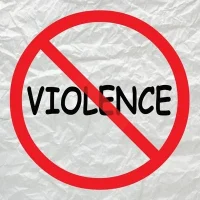Deadline: 25-Aug-2020
The European Union (EU) has announced a call for proposals for the engagement with civil society in Indonesia, New Zealand, Thailand and the ASEAN Regional Level.
Objectives
- The global objective of this call for proposals is to increase awareness of EU foreign policy objectives and EU’s engagement in Indonesia, Thailand, and at the ASEAN regional level, as well as in New Zealand; and to bridge the cultural gap, thereby raising the EU’s profile as a strategic partner in tackling the relevant bilateral and global issues.
- The specific objective is to develop EU’s soft power, understanding of the EU, and build trust through increased dialogue and exchanges between Civil Society Organisations and groupings, from the EU, Indonesia, Thailand, ASEAN region, and New Zealand on issues of common interest or sensitive public opinion issues, through the exchange of practices, standards, cultures, and models.
Lots
- Lot 1 – Extracurricular programmes on EU models in New Zealand
- Lot 2 – Indonesia-EU Civil Society Networking on Environmental Health
- Lot 3 – Youth and Civil society dialogue on Rethinking Urban Spaces in Thailand
- Lot 4 – EU-ASEAN Think tank dialogues for strategic partnerships
Funding Information
- The overall indicative amount made available under this call for proposals is EUR 1,200,000. The contracting authority reserves the right not to award all available funds.
- Size of grants
- Lot 1:
- minimum amount: EUR 250,000
- maximum amount: EUR 300,000
- Lot 2:
- minimum amount: EUR 250,000
- maximum amount: EUR 300,000
- Lot 3:
- minimum amount: EUR 250,000
- maximum amount: EUR 300,000
- Lot 4:
- minimum amount: EUR 250,000
- maximum amount: EUR 300,000
- Lot 1:
Duration
The initial planned duration of an action may not be lower than 24 months nor exceed 36 months.
Location
Actions must take place in New Zealand.
Eligibility Criteria
Lead applicant(s)
In order to be eligible for a grant, the lead applicant must:
- be a legal person and
- be non-profit-making and
- be directly responsible for the preparation and management of the action with the coapplicant(s) and affiliated entity(ies), not acting as an intermediary and
- for Lot 1 – Extracurricular programmes on EU models in New Zealand be a civil society organisations and be established in a Member State of the European Union, in New Zealand or in an eligible country or territory as defined under the Regulation (EU) N°236/2014 establishing common rules and procedures for the implementation of the Union’s instruments for external action (CIR) for the applicable Instrument.
- For Lot 2 – Indonesia-EU Civil Society Networking on Environmental Health be a nongovernmental organisation or association working with civil society and be established in a Member State of the European Union, in Indonesia or in an eligible country or territory as defined under the Regulation (EU) N°236/2014 establishing common rules and procedures for the implementation of the Union’s instruments for external action (CIR) for the applicable Instrument.
- For Lot 3 – Youth and Civil society dialogue on Rethinking Urban Spaces in Thailand be a non-governmental organisation or association working with civil society and be established in a Member State of the European Union, in Thailand or in an eligible country or territory as defined under the Regulation (EU) N°236/2014 establishing common rules and procedures for the implementation of the Union’s instruments for external action (CIR) for the applicable Instrument.
- for Lot 4 – EU-ASEAN Think tank dialogues for strategic partnerships be a public or private think-tank, research institute or academic institution (including higher education institutions) that issues post-graduate and higher level degrees and be established in a Member State of the European Union, in a Member State of ASEAN or in an eligible country or territory as defined under the Regulation (EU) N°236/2014 establishing common rules and procedures for the implementation of the Union’s instruments for external action (CIR) for the applicable Instrument.
Co-applicant(s)
- The minimum number of co-applicants to be involved is one (1) for each lot. For all lots:
- The minimum number of Co-applicants is one (1) if the Lead applicant is established in a Member State of the European Union, at least one (1) of the Co-applicants must be established in the target country of the lot. Inversely, if the Lead applicant is established in the target country of the lot , at least one (1) of the Co-applicants must be established in a Member State of the European Union.
- The minimum number of Co-applicants is two (2) if the Lead applicant is established in an eligible country that is not an EU Member State or the target country of the lot. At least one (1) of the Coapplicants must be established in a Member State of the European Union and at least one (1) of the Co-applicants must be established in the target country.
- Co-applicants participate in designing and implementing the action, and the costs they incur are eligible in the same way as those incurred by the lead applicant.
- Co-applicants must satisfy the eligibility criteria as applicable to the lead applicant himself.
Affiliated entity(ies)
- The lead applicant and its co-applicant(s) may act with affiliated entity(ies).
- Only the following entities may be considered as affiliated entities to the lead applicant and/or to coapplicant(s):
- Only entities having a structural link with the applicants (i.e. the lead applicant or a co-applicant), in particular a legal or capital link.
- This structural link encompasses mainly two notions:
- Control, as defined in Directive 2013/34/EU on the annual financial statements, consolidated financial statements and related reports of certain types of undertakings:
- Entities affiliated to an applicant may hence be:
- Entities directly or indirectly controlled by the applicant (daughter companies or first-tier subsidiaries). They may also be entities controlled by an entity controlled by the applicant (granddaughter companies or second-tier subsidiaries) and the same applies to further tiers of control;
- Entities directly or indirectly controlling the applicant (parent companies). Likewise, they may be entities controlling an entity controlling the applicant;
- Entities under the same direct or indirect control as the applicant (sister companies).
- Entities affiliated to an applicant may hence be:
- Control, as defined in Directive 2013/34/EU on the annual financial statements, consolidated financial statements and related reports of certain types of undertakings:
- Membership, i.e. the applicant is legally defined as a e.g. network, federation, association in which the proposed affiliated entities also participate or the applicant participates in the same entity (e.g. network, federation, association,…) as the proposed affiliated entities.
For more information, visit EuropeAid.









































